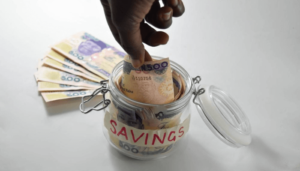
The saving culture of cash-strapped Nigerians, especially women has greatly reduced following the rising cost of living and stagnant incomes.
A recent Global Findex report by the World Bank, reveals that there was a decline in the percentage of adult women who saved at financial institutions by 8.6 percentage points to 12.3 percent in 2021 from 20.9 percent in 2011. The 12.3 percent is also lower than the 23.1
READ ALSO: How COVID-19, Economic Recession Affected Buhari’s Administration– Aide
percent of adult men who saved in 2021.
Analysts, who did not express surprise over the data, said the current socio-economic indicators such as elevated poverty levels, rising inflation, high unemployment, low incomes, and weak purchasing power are affecting people’s ability to save.
Inflation and unemployment levels have worsened which has increased the country’s misery index, says Abiodun Keripe, managing director at Afrinvest Consulting Limited.
“So, clearly these would affect the rate at which people would want to save, regardless of whatever class or age bracket they are. We will only see an improvement when there is a reversal of these indicators,” Keripe said.
Analysts further disclosed that if people are not saving for the future, they are in poverty because the money that they save gives them the ability to make investments.
Data sourced from the National Bureau of Statistics (NBS), shows that the country’s inflation rate surged to a 17-yr high by 20.77 percent in September 2022. The high inflation rate already puts it among the highest in the world.
Unemployment also is at an all-time high, recording 33.3 percent in 2020. It’s no wonder that the 2021 Hanke’s Misery Index ranked Nigeria as the world’s 11th most miserable country out of 156 countries.
Savings fuel economic growth as seen in countries with higher rates of savings compared with those with lower savings rates.
READ ALSO: “We Are Ready For Buhari Govt” – ASUU Reacts As FG Pays Half Salaries For October
‘‘Save before you start spending. When you start doing this, you build discipline. Twenty percent of all your earnings should go to your savings immediately and live on the remaining 80 percent like it’s all you earned.’’ Rayo Ahenmokai, founder of Lagos housewives said at an event on Monday.
Funke Felix-Adejumo, a Lagos-based pastor and marriage counselor, explained that it is essential to have multiple streams of income so that you can save and invest and also buy shares in companies you like such as Apple, Coca-Cola, etc.

